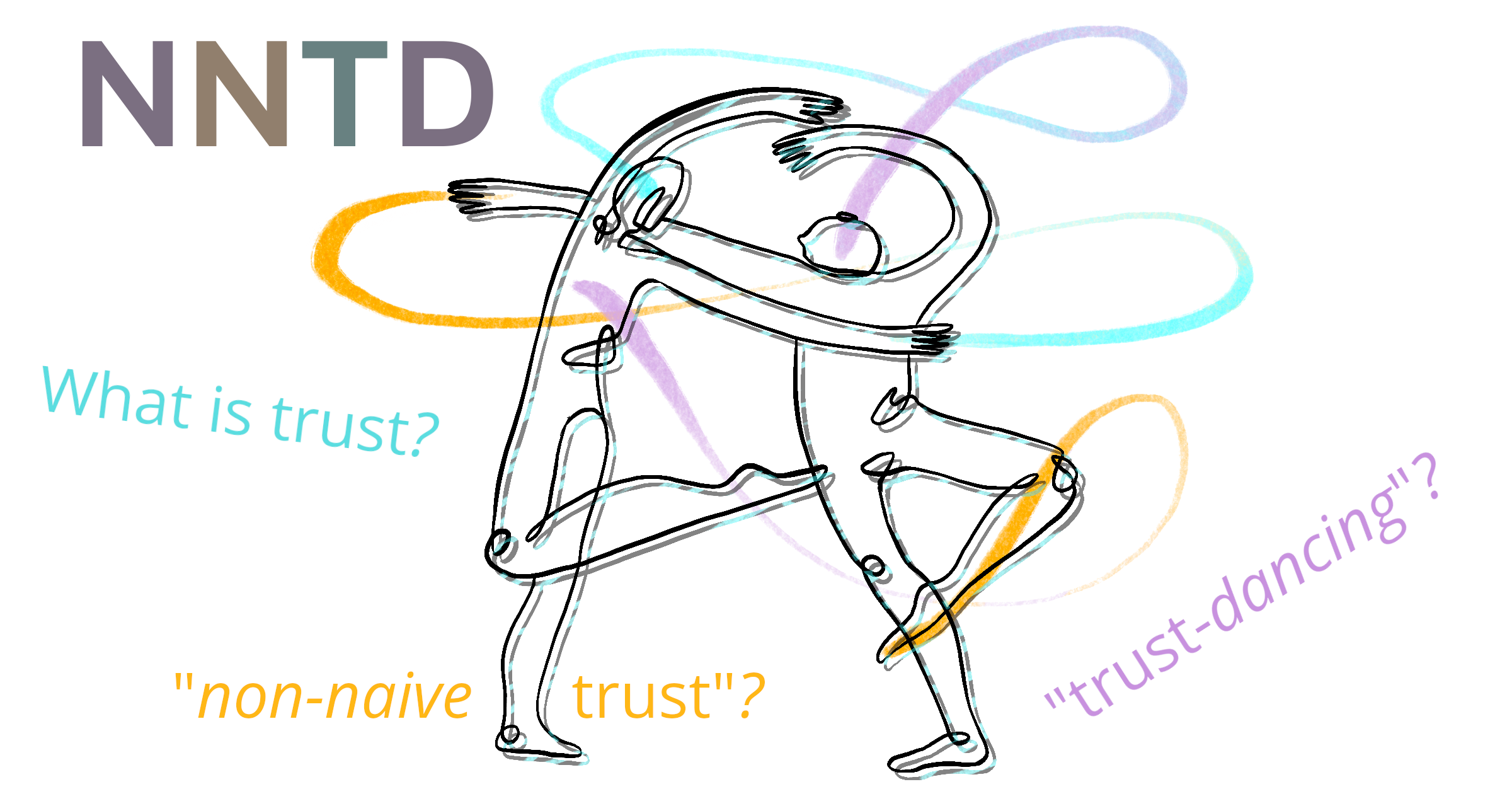“If you can trust yourself when all men doubt you, but make allowance for their doubting too” —Rudyard Kipling
I’m intending to write a whole sequence of posts that express various elements of the Non-Naive Trust Dance framework I discovered last year, and thought that a good piece to write early on would be an introduction that talks about why it has the name it does, answering in brief these three questions:
I suppose it’s worth noting that I don’t remember choosing a name for this thing when I discovered it last year—this was just sort of the obvious thing to call it as I was seeing it from my perspective at the time.

My context for thinking about trust comes from my longtime colleague Jean Robertson, who points out that all trust is fundamentally trust in one’s own experience, or “self-trust” for short. Trust also needs to be qualified as trust in something in particular. There’s no general “I trust you” (or not). As someone put it:
“I trust Alice to return a $10 loan but not a $10,000 loan, Bob to return a $10,000 loan but not to babysit an infant, Carol to babysit but not with my house key, Dave with my house key but not my intimate secrets, and Ellen with my intimate secrets but not to return a $10 loan. I trust Frank if a friend vouches for him, a taxi driver as long as he’s displaying his license, and Gail as long as she hasn’t been drinking.”
From Bruce Schneier, Liars and Outliers — via Kaj Sotala, “Don’t trust people, trust their components“
Elaborating on this, what the person is saying here is “based on trusting my experience of these various folks, I have predictions of what they would do, that I’m prepared to base my decisions on.” If Alice wanted to borrow $10,000, or Bob offered to babysit, this person would then be faced with a situation where their friend would be making a bid to be trusted in a way that the person actually doesn’t trust them.
That’s a tough situation to be in, particularly if it doesn’t feel easy to talk about.
» read the rest of this entry »